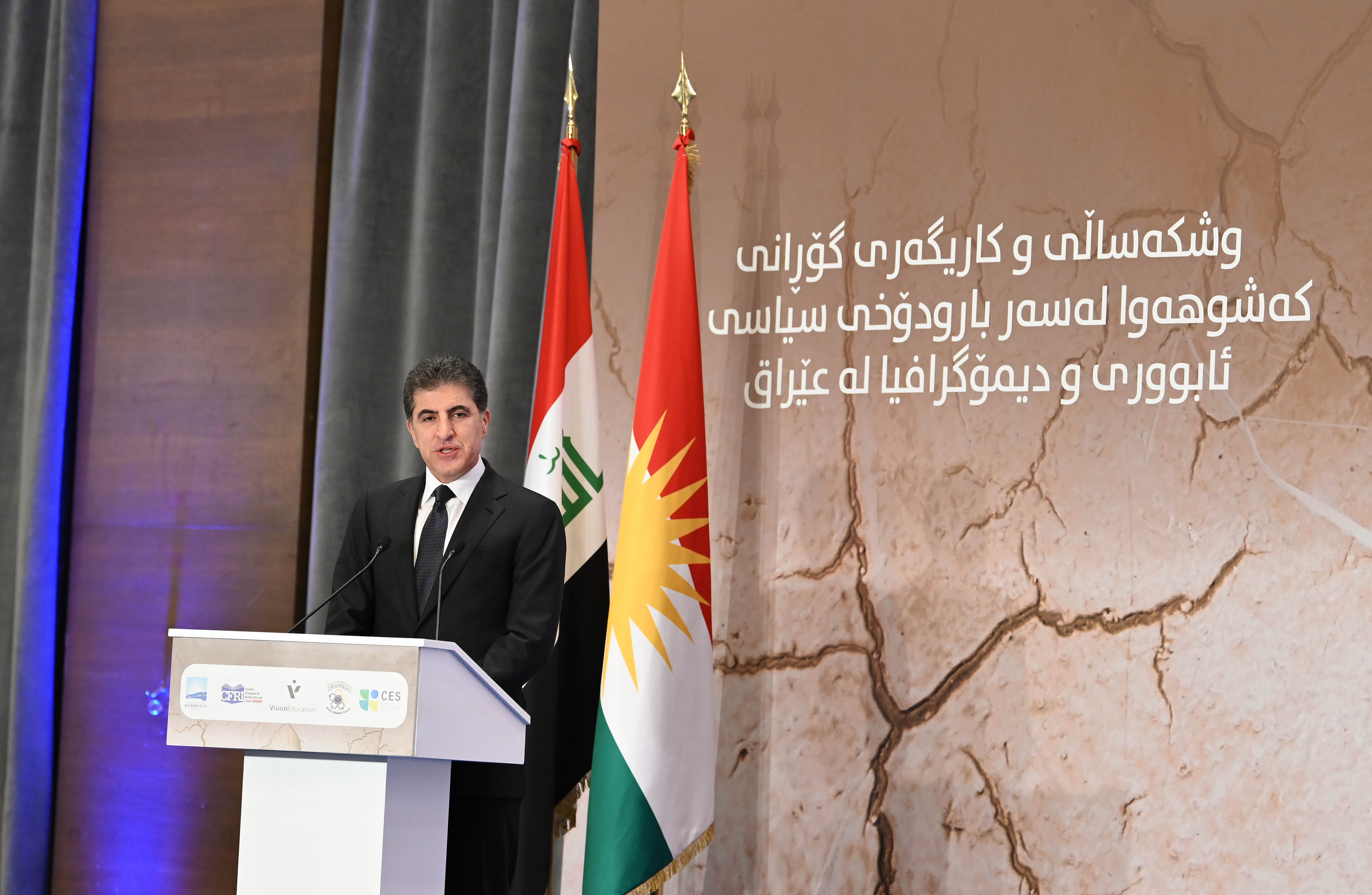
2024-05-12T10:19:18.000000Z
Erbil, Kurdistan Region, May 12, 2024
President Nechirvan Barzani participated in the International Climate Change Symposium alongside Dr. Latif Jamal Rashid, President of the Federal Republic of Iraq, Prime Minister Masrour Barzani of the Kurdistan Region, as well as various officials, academics, researchers, and guests from both domestic and international backgrounds. During the event, the President of the Kurdistan Region addressed the audience, emphasizing the significance of addressing climate change impacts on Iraq and the Kurdistan Region. He highlighted the necessity of implementing effective plans and strategies to mitigate associated risks. Here is the full readout of the President's speech at the symposium titled “Drought and the Impact of Climate Change on the Political, Economic, and Demographic Situation of Iraq”:
Your Excellency Dr. Latif Rashid,
The President of the Federal Republic of Iraq,
Ladies and Gentleman,
Good morning,
I extend my warm welcome to all participants in the Symposium on Climate Change and its Impacts on Iraq. I extend my congratulations to the organizers and wish them success in their endeavors to deliver valuable insights, recommendations, and strategies for managing associated risks.
Regrettably, Iraq is significantly impacted by climate change. According to the most recent UN report, it is positioned as the fifth most affected country globally. This situation has adverse implications across various aspects of life in Iraq, encompassing the Kurdistan Region. The ongoing effects of climate change have led to numerous threats, notably the escalation of desertification and the destruction of agricultural land. Data indicates that approximately hundreds of square kilometers of agricultural land in Iraq transforms into desert annually.
There is also a continuous and increasing depletion of surface and groundwater, weakening food security, and increased migration from the affected areas to other parts of Iraq and the Kurdistan Region.
According to the IOM, 130,000 people have been forced to flee their homes in southern Iraq in recent years. This is in addition to the deterioration of social security, increased unemployment and poverty, increased health problems, natural disasters and many other consequences.
The situation in the past prevented Iraq from paying enough attention to the importance and gravity of this issue. Therefore, we in Iraq and the Kurdistan Region need to act quickly to develop immediate and long-term strategies to address the risks posed by climate change, adapt to its consequences, and prevent disasters.
To this end, this issue must be prioritised and treated with seriousness in the policies and programs of both the Federal Iraqi Government and the Kurdistan Regional Government, through their collaborative efforts.
It should be adequately budgeted and supported by specialized institutions with greater powers and capacities than may currently exist. These institutions should be up to the task of addressing the risks, challenges, and breadth of the consequences.
It is crucial for education systems and programs to prioritize environmental awareness and culture, emphasizing areas such as water conservation, air pollution reduction, energy consumption reduction, and waste reduction. Awareness initiatives through media, cultural centers, and even religious institutions should aim to raise consciousness about this vital issue among individuals, families, and society as a whole.
Ladies and Gentlemen,
Due to the impacts of climate change and its associated repercussions, the significance of water is set to escalate, necessitating improved management strategies. Iraq, heavily reliant on its neighboring countries for the majority of its river water supply, must prioritize this issue to safeguard its water security.
Additionally, Iraq must actively engage in expanding coordination and cooperation with regional and global partners to mitigate the threats and challenges of climate change. It is imperative we develop a comprehensive national plan and strategy and implement it promptly.
The Kurdistan Region has abundant water resources. Special attention should be paid to dams and reservoirs both within the Kurdistan Region and across Iraq. It is important for the Iraqi Federal Government to support the Kurdistan Region in this area, as well as in initiatives for reforestation.
The Kurdistan Region's location and topography are very conducive to the construction of several dams and hundreds of ponds that can hold large volumes of water and thereby contribute considerably to Iraq’s adaptation to climate change. I ask His Excellency the President, who is here today, to help in this regard.
I extend my congratulations to the Kurdistan Regional Government for effectively constructing multiple ponds across various areas of the Kurdistan Region and gathering a substantial volume of water on a yearly basis.
Ladies and Gentlemen,
Our long-term interests always outweigh problems and conflicts, and we must act on that conviction. Over the past few weeks in Iraq, we have taken encouraging steps to build confidence and bring us all together around a national roadmap.
This will positivity impact the relations between Iraq and the Kurdistan Region, as well as regionally, ultimately benefiting the entire country. Together, we in Iraq and the Kurdistan Region, can better serve the nation and work towards a brighter future for all.
Finally, I extend my best wishes for the success of this conference. I would like to thank the French Research Center on Iraq, the University of Kurdistan-Hewler, and the Bahr al-Uloom Charity Foundation for organizing this significant event. I hope it may yield good results.
Thank you all very much.
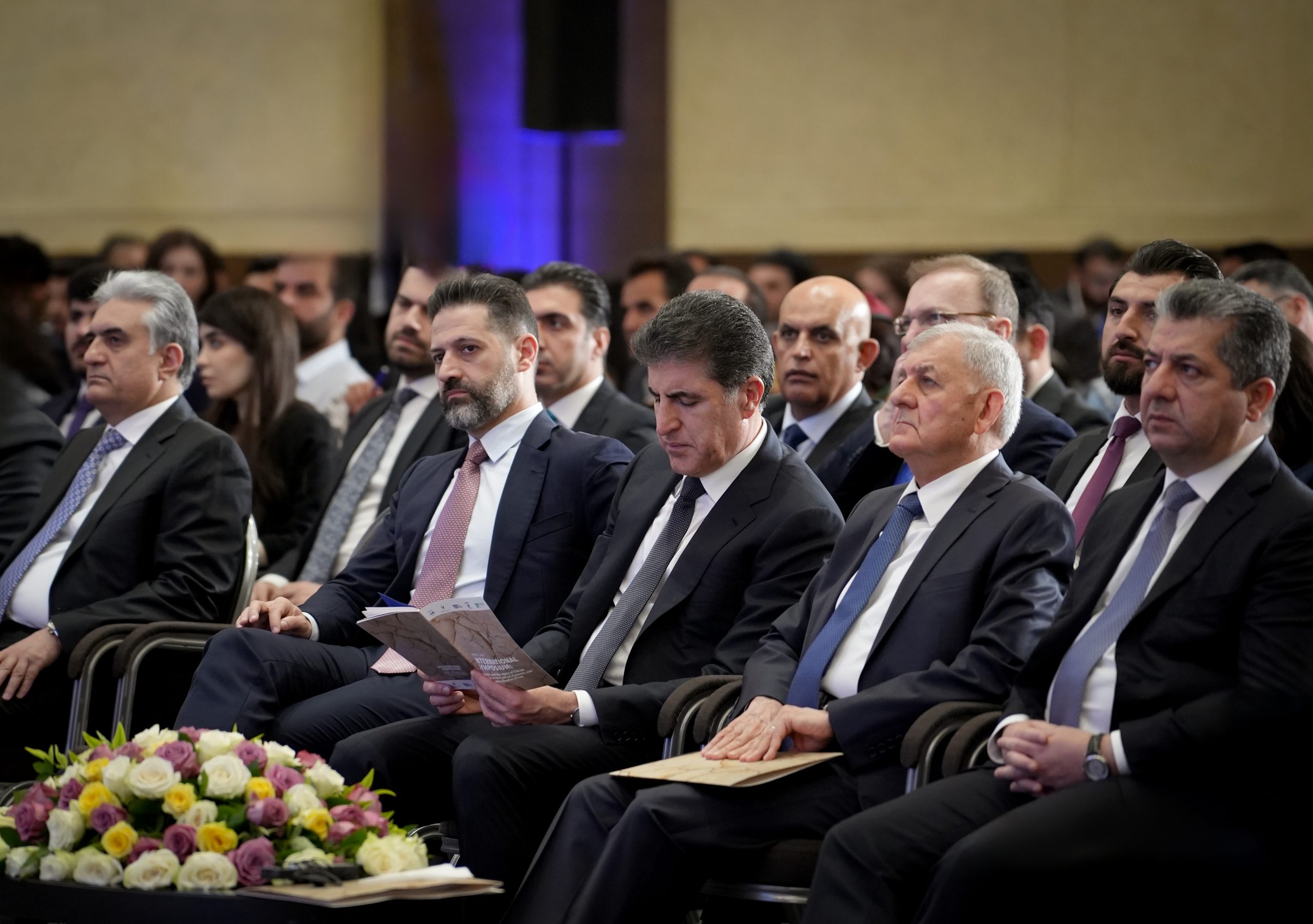
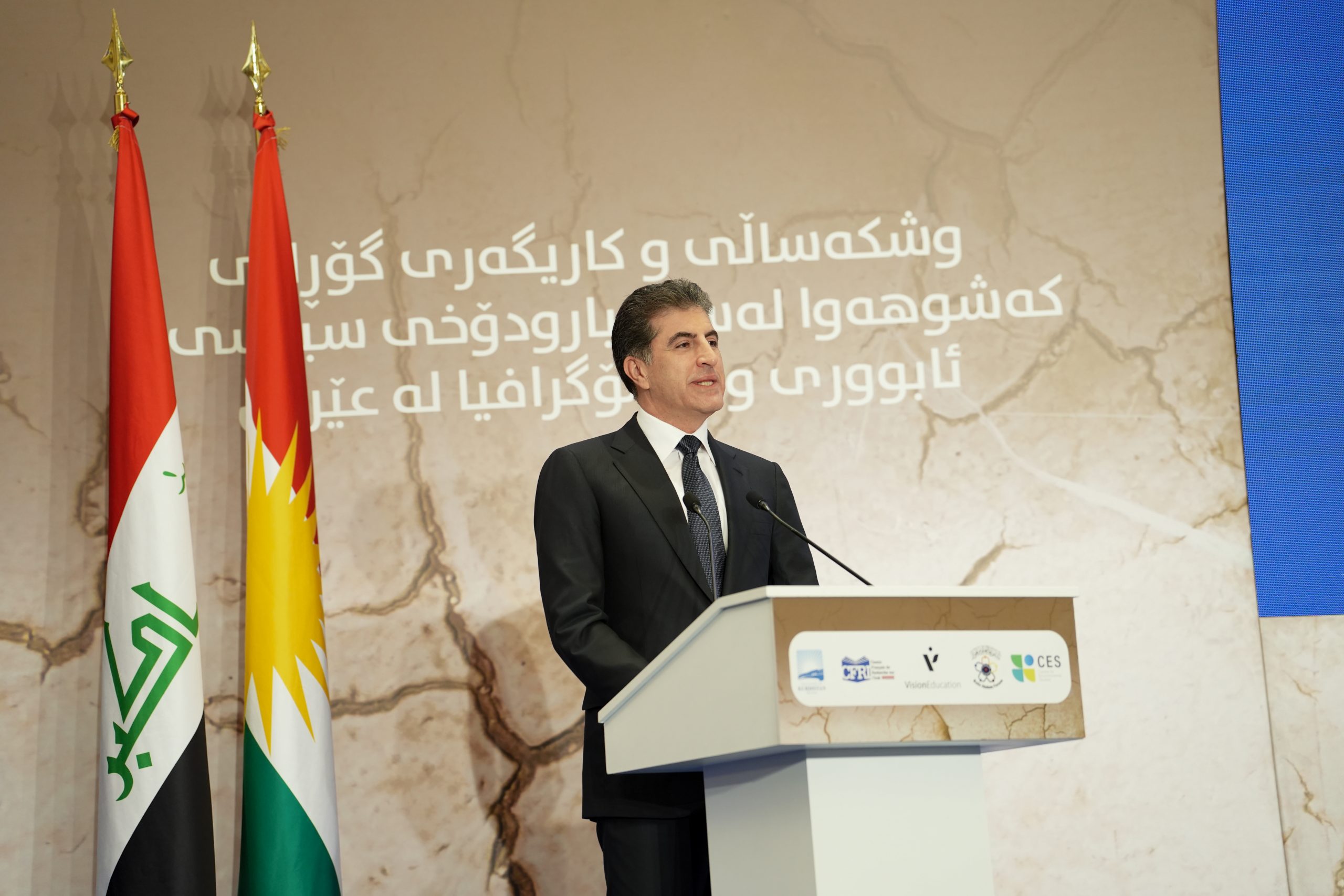
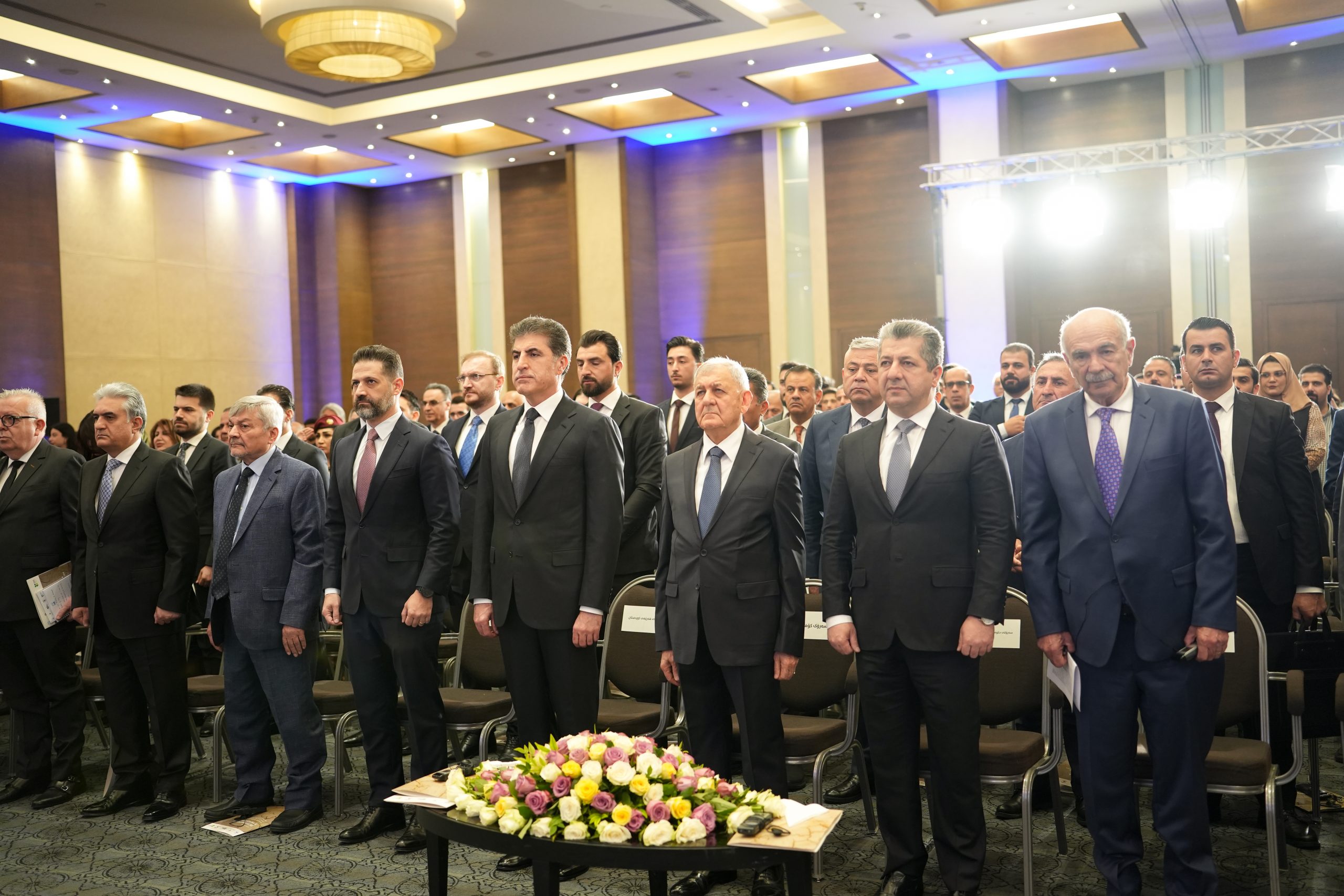
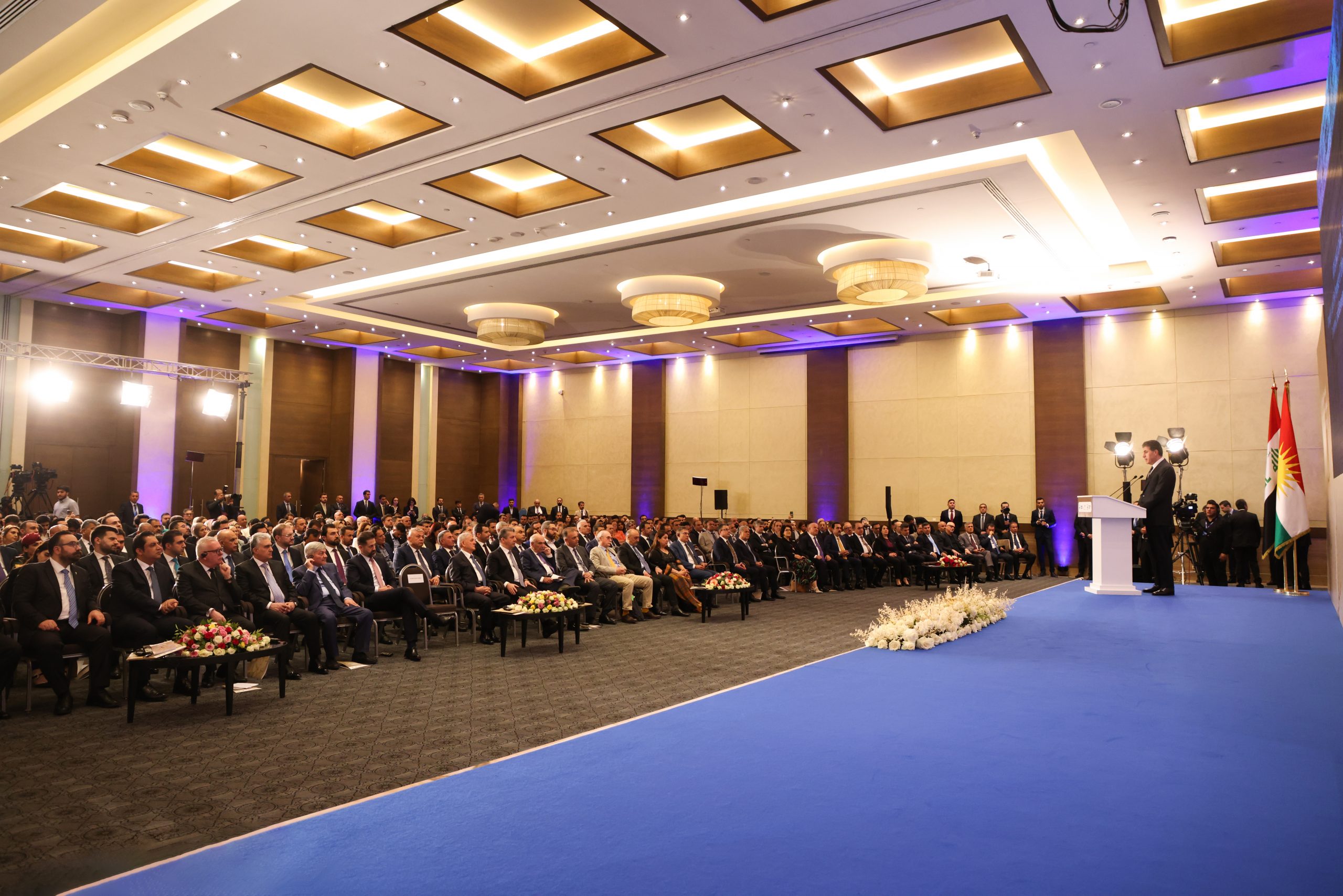
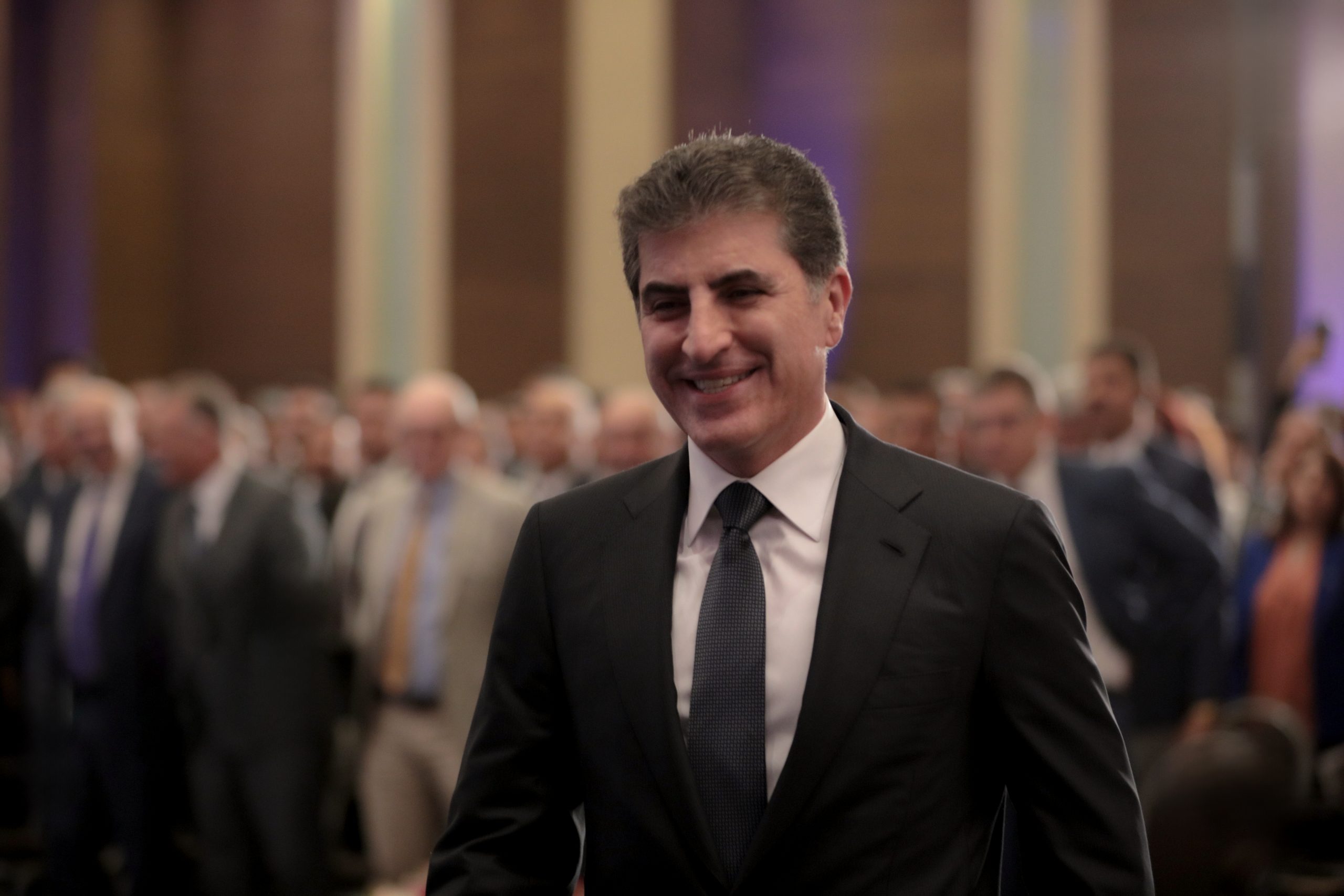
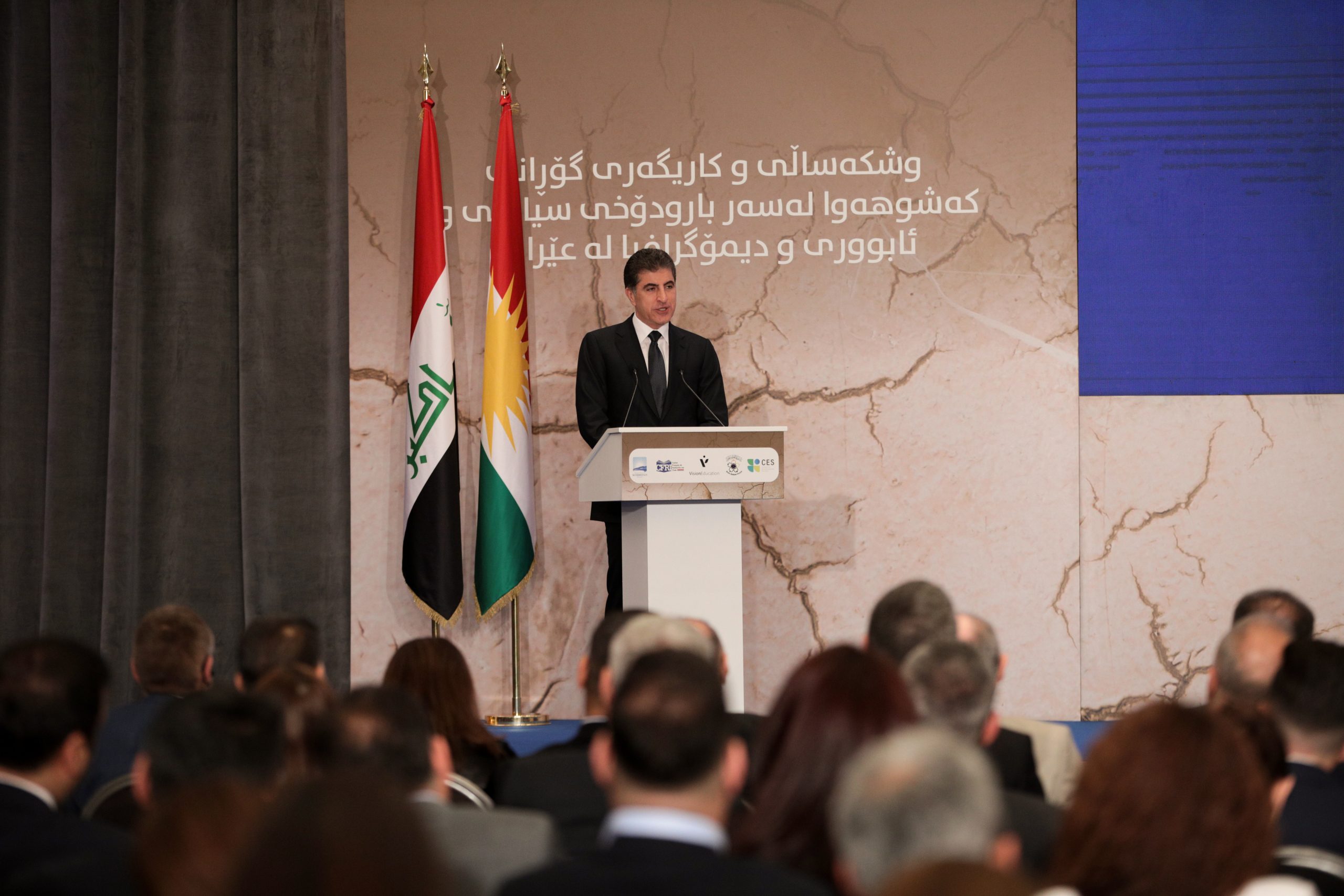
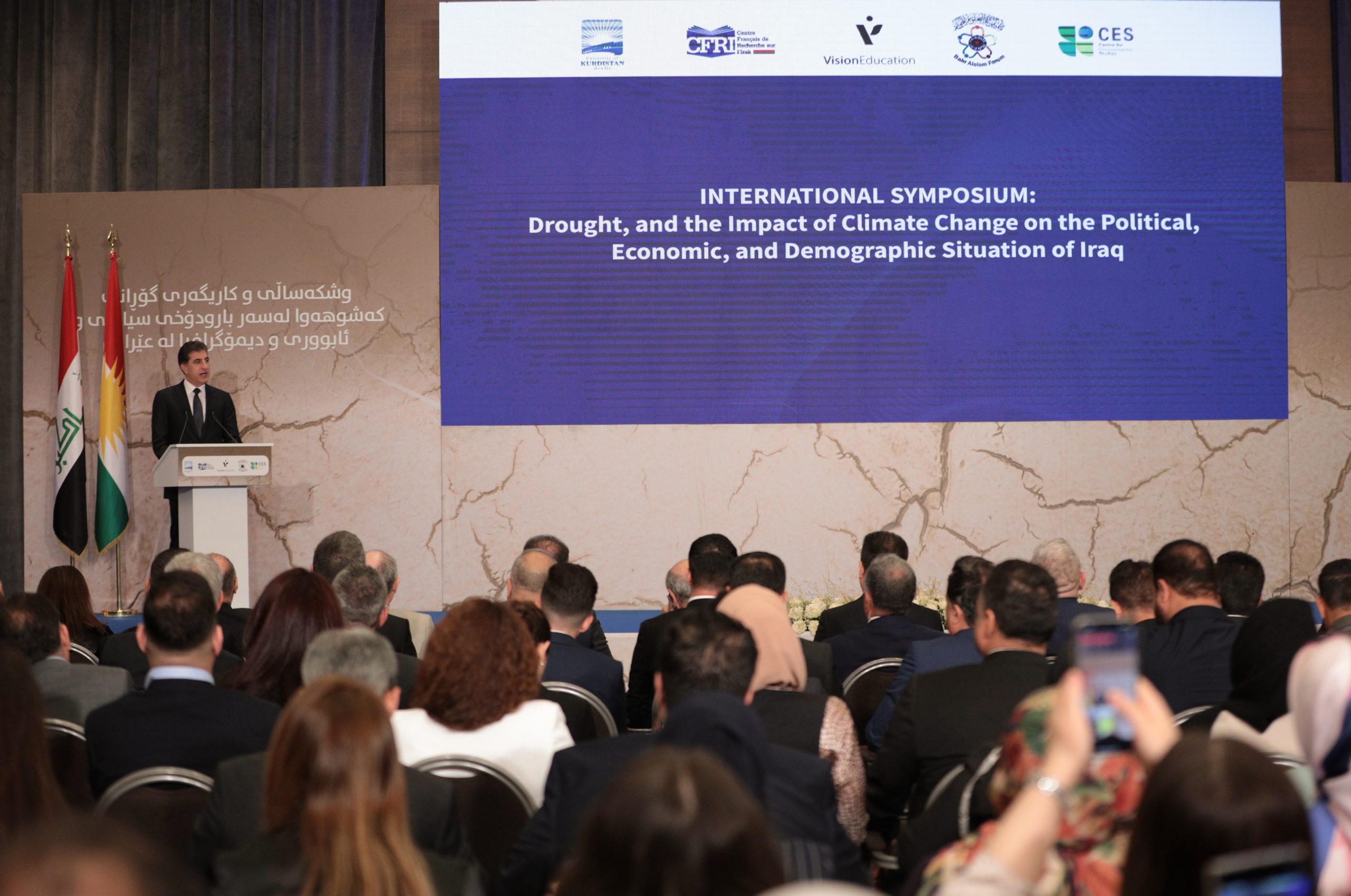
President Nechirvan Barzani participated in the International Climate Change Symposium alongside Dr. Latif Jamal Rashid, President of the Federal Republic of Iraq, Prime Minister Masrour Barzani of the Kurdistan Region, as well as various officials, academics, researchers, and guests from both domestic and international backgrounds. During the event, the President of the Kurdistan Region addressed the audience, emphasizing the significance of addressing climate change impacts on Iraq and the Kurdistan Region. He highlighted the necessity of implementing effective plans and strategies to mitigate associated risks. Here is the full readout of the President's speech at the symposium titled “Drought and the Impact of Climate Change on the Political, Economic, and Demographic Situation of Iraq”:
Your Excellency Dr. Latif Rashid,
The President of the Federal Republic of Iraq,
Ladies and Gentleman,
Good morning,
I extend my warm welcome to all participants in the Symposium on Climate Change and its Impacts on Iraq. I extend my congratulations to the organizers and wish them success in their endeavors to deliver valuable insights, recommendations, and strategies for managing associated risks.
Regrettably, Iraq is significantly impacted by climate change. According to the most recent UN report, it is positioned as the fifth most affected country globally. This situation has adverse implications across various aspects of life in Iraq, encompassing the Kurdistan Region. The ongoing effects of climate change have led to numerous threats, notably the escalation of desertification and the destruction of agricultural land. Data indicates that approximately hundreds of square kilometers of agricultural land in Iraq transforms into desert annually.
There is also a continuous and increasing depletion of surface and groundwater, weakening food security, and increased migration from the affected areas to other parts of Iraq and the Kurdistan Region.
According to the IOM, 130,000 people have been forced to flee their homes in southern Iraq in recent years. This is in addition to the deterioration of social security, increased unemployment and poverty, increased health problems, natural disasters and many other consequences.
The situation in the past prevented Iraq from paying enough attention to the importance and gravity of this issue. Therefore, we in Iraq and the Kurdistan Region need to act quickly to develop immediate and long-term strategies to address the risks posed by climate change, adapt to its consequences, and prevent disasters.
To this end, this issue must be prioritised and treated with seriousness in the policies and programs of both the Federal Iraqi Government and the Kurdistan Regional Government, through their collaborative efforts.
It should be adequately budgeted and supported by specialized institutions with greater powers and capacities than may currently exist. These institutions should be up to the task of addressing the risks, challenges, and breadth of the consequences.
It is crucial for education systems and programs to prioritize environmental awareness and culture, emphasizing areas such as water conservation, air pollution reduction, energy consumption reduction, and waste reduction. Awareness initiatives through media, cultural centers, and even religious institutions should aim to raise consciousness about this vital issue among individuals, families, and society as a whole.
Ladies and Gentlemen,
Due to the impacts of climate change and its associated repercussions, the significance of water is set to escalate, necessitating improved management strategies. Iraq, heavily reliant on its neighboring countries for the majority of its river water supply, must prioritize this issue to safeguard its water security.
Additionally, Iraq must actively engage in expanding coordination and cooperation with regional and global partners to mitigate the threats and challenges of climate change. It is imperative we develop a comprehensive national plan and strategy and implement it promptly.
The Kurdistan Region has abundant water resources. Special attention should be paid to dams and reservoirs both within the Kurdistan Region and across Iraq. It is important for the Iraqi Federal Government to support the Kurdistan Region in this area, as well as in initiatives for reforestation.
The Kurdistan Region's location and topography are very conducive to the construction of several dams and hundreds of ponds that can hold large volumes of water and thereby contribute considerably to Iraq’s adaptation to climate change. I ask His Excellency the President, who is here today, to help in this regard.
I extend my congratulations to the Kurdistan Regional Government for effectively constructing multiple ponds across various areas of the Kurdistan Region and gathering a substantial volume of water on a yearly basis.
Ladies and Gentlemen,
Our long-term interests always outweigh problems and conflicts, and we must act on that conviction. Over the past few weeks in Iraq, we have taken encouraging steps to build confidence and bring us all together around a national roadmap.
This will positivity impact the relations between Iraq and the Kurdistan Region, as well as regionally, ultimately benefiting the entire country. Together, we in Iraq and the Kurdistan Region, can better serve the nation and work towards a brighter future for all.
Finally, I extend my best wishes for the success of this conference. I would like to thank the French Research Center on Iraq, the University of Kurdistan-Hewler, and the Bahr al-Uloom Charity Foundation for organizing this significant event. I hope it may yield good results.
Thank you all very much.












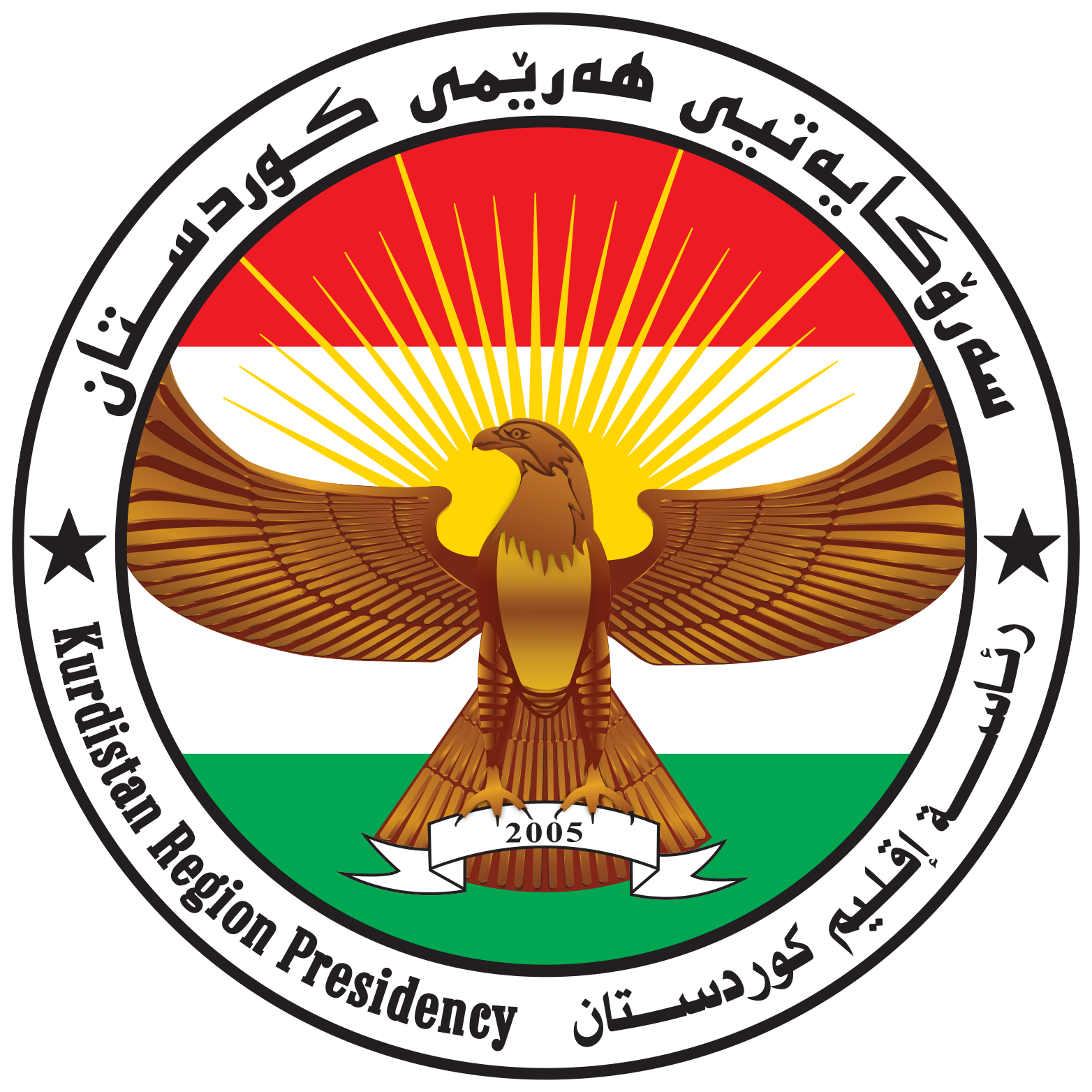

 پەرلەمانی کوردستان
پەرلەمانی کوردستان
